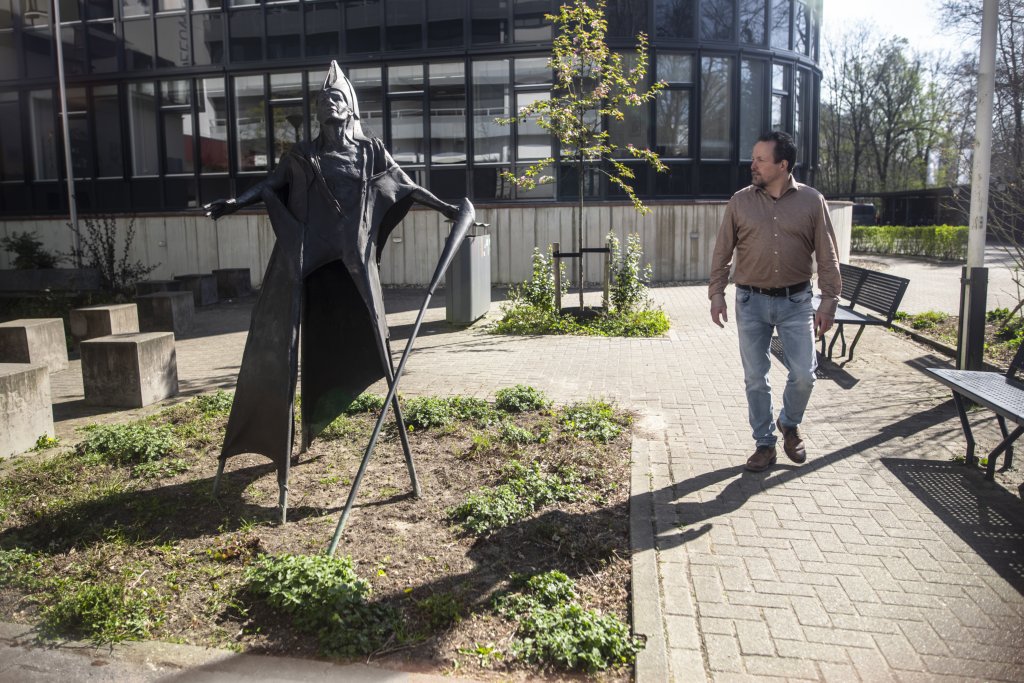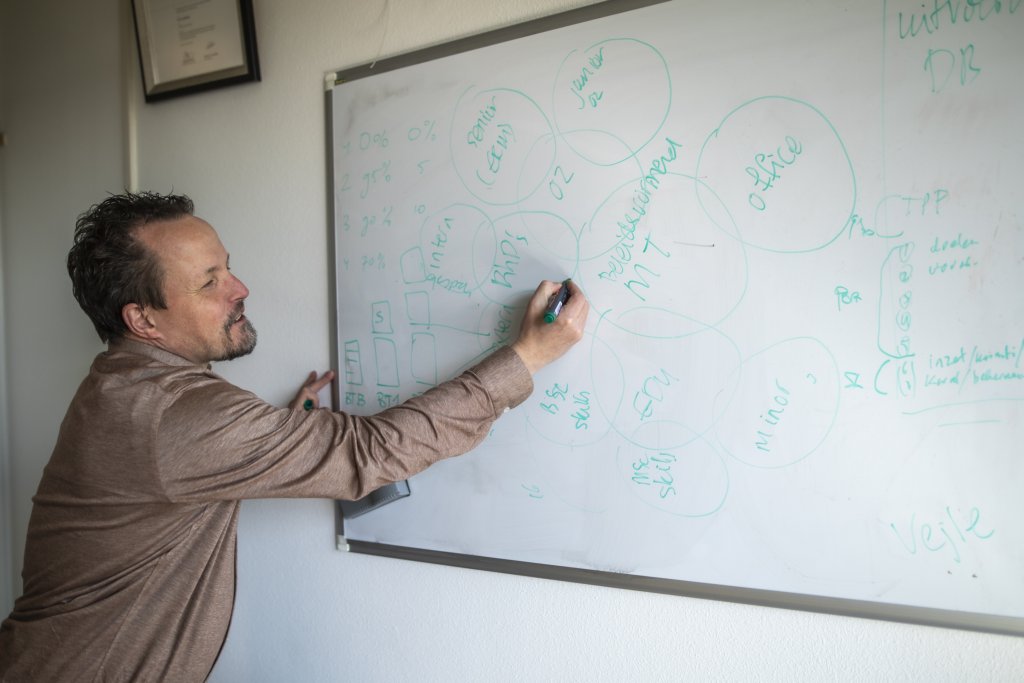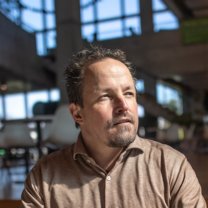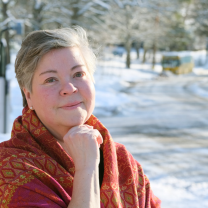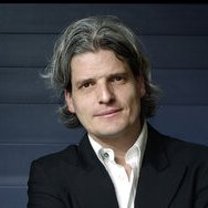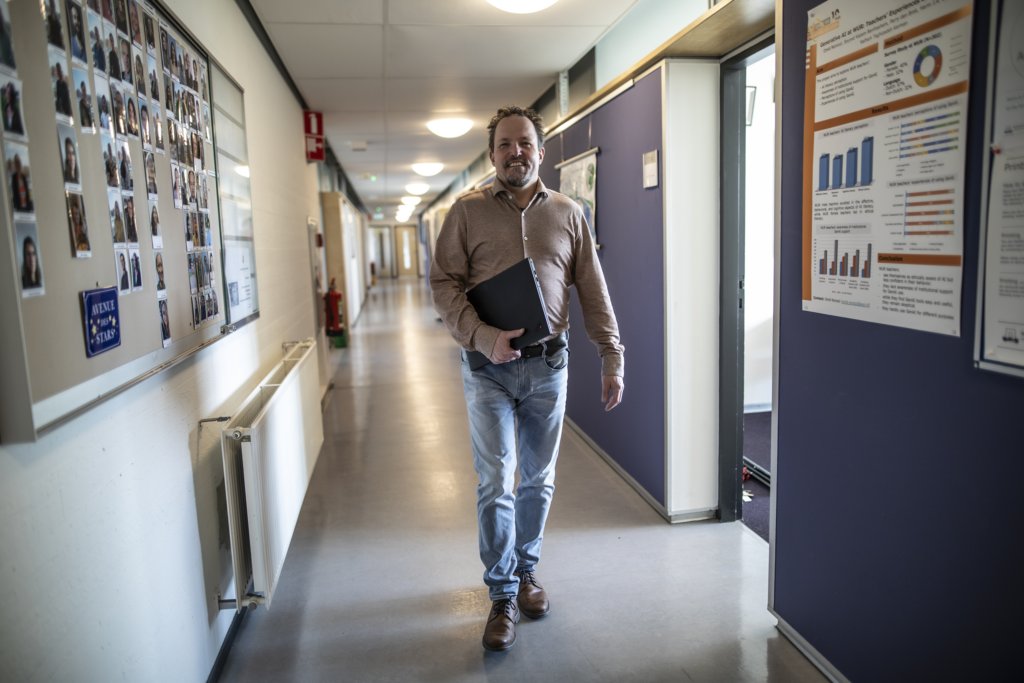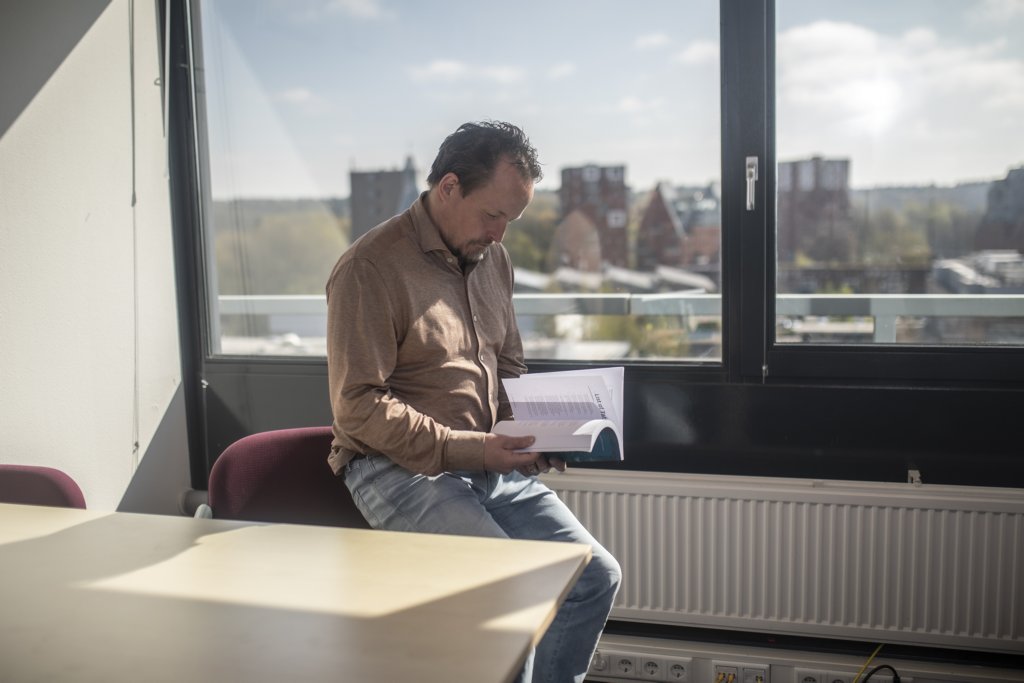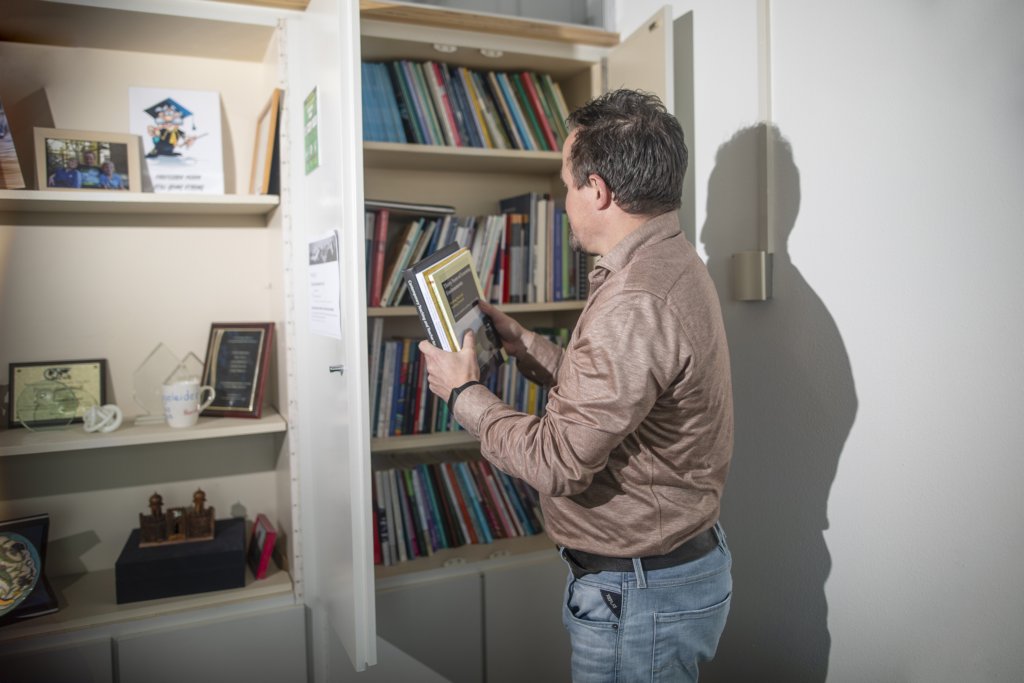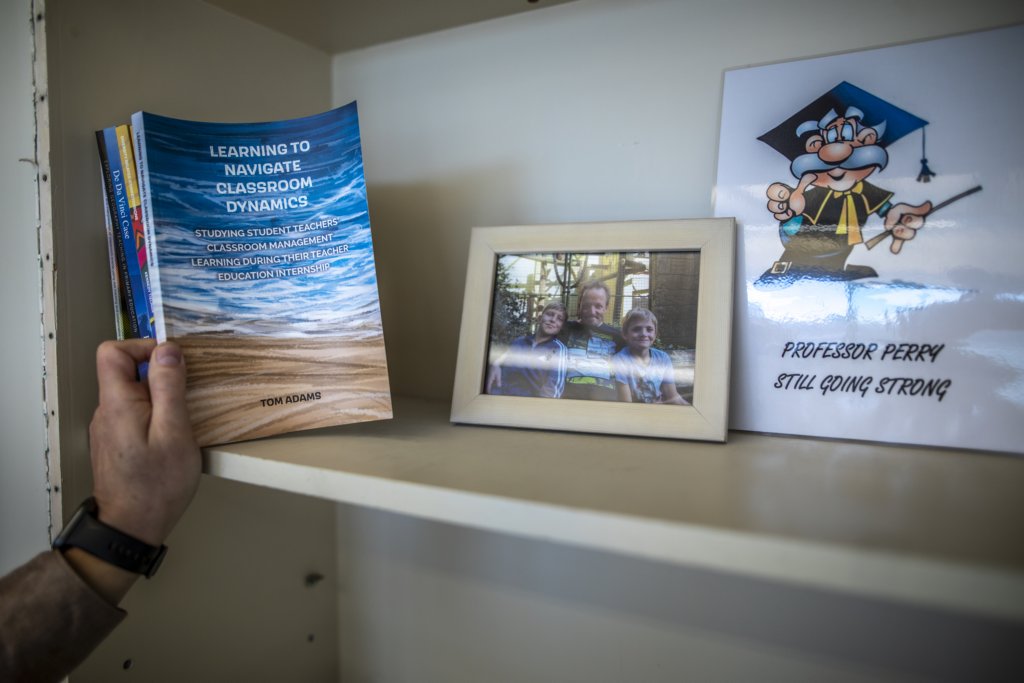II - Emerging practical frameworks: ‘Education innovation is beginning to pay off’
For ten years now, 4TU.CEE has focused on innovating engineering education. It’s a question of trial and error - just as in other design processes. What is already going well? How does this translate into practice? And what still needs to be done? Four experts (see text box) shed light on this, in the second part of our interview series celebrating 10 years of 4TU.CEE.
The innovation of engineering education is well underway, as we read in the first story in this series. The four TUs are working together on new models of engineering education and are already applying them in different places. So what is the current state of progress? Is there any perceptible impact yet?
Dealing with uncertainty
Nina Bohm, an engineering graduate of TU Delft, completed her PhD in 2024 on a topic that also touches on the social and behavioural sciences – as well as philosophy. Her dissertation is entitled ‘Educating Uncertainty. How students and teachers deal with uncertainty in transdisciplinary courses on urban sustainability’.
“The future is by definition uncertain,” Bohm explains, “but it’s all the more true for engineers. Not only society and its challenges are changing, but also the engineer’s tools and methods – for instance, as a result of AI. In both areas, it is difficult to predict what will happen exactly. How will people deal with those changes? How does this affect their learning process? And what do they need, in order to keep growing professionally?”
Previously overlooked
One of Bohm’s supervisors is Perry den Brok, professor of Education and Learning Sciences at Wageningen University. “Nina’s subject is incredibly important,” he emphasises. “In all innovations, including in education, we are used to focusing on mechanisms, characteristics, criteria... and much less on the emotional side. What does a certain development do to people? This uncertainty, experienced by everyone to some extent, is a very important factor. That had never really been studied properly before.”
Bohm discovered certain patterns in the way in which engineers – both students and teachers – respond to uncertainties. “A first reaction is: asking for help – a very human response. Secondly, I found that people are managing themselves, especially their brain, remarkably actively in times of uncertainty. For example, balancing work and relaxation, and balancing cognitive work and things like sports or going out. And finally, I noted success factors that contribute to people developing effectively: flexibility, perseverance, but also: relativism. Maintaining confidence in your profession and in science also requires that you approach it critically and with a certain lightness.” These findings are already finding their way into the teaching practice, says her supervisor Den Brok. “In her final chapters, Nina proposed a framework that describes the various aspects of uncertainty, and also indicates which actions can be associated with them. I am already getting a lot of questions about this from the teaching field: how does this work, how can we start applying this?”
Role in the world
Bohm and Den Brok also mention other uncertainties that engineers are increasingly confronted with, including social complexity, cultural differences and diversity. Den Brok: “But also the individualisation of education: students simply have ‘choice stress’. They have to meet more and more requirements. And they are not only trained to be able to work technically, but also in policy, companies, advisory functions...”
Bohm adds: “Therefore university courses should focus much more on developing your own profile, on student well-being, and on alternative ways of learning. And it should pay attention to philosophical questions: what is your role in the world? How can you get to know yourself better, develop to the best of your ability, and position yourself in the world? This is what should be addressed much more.”
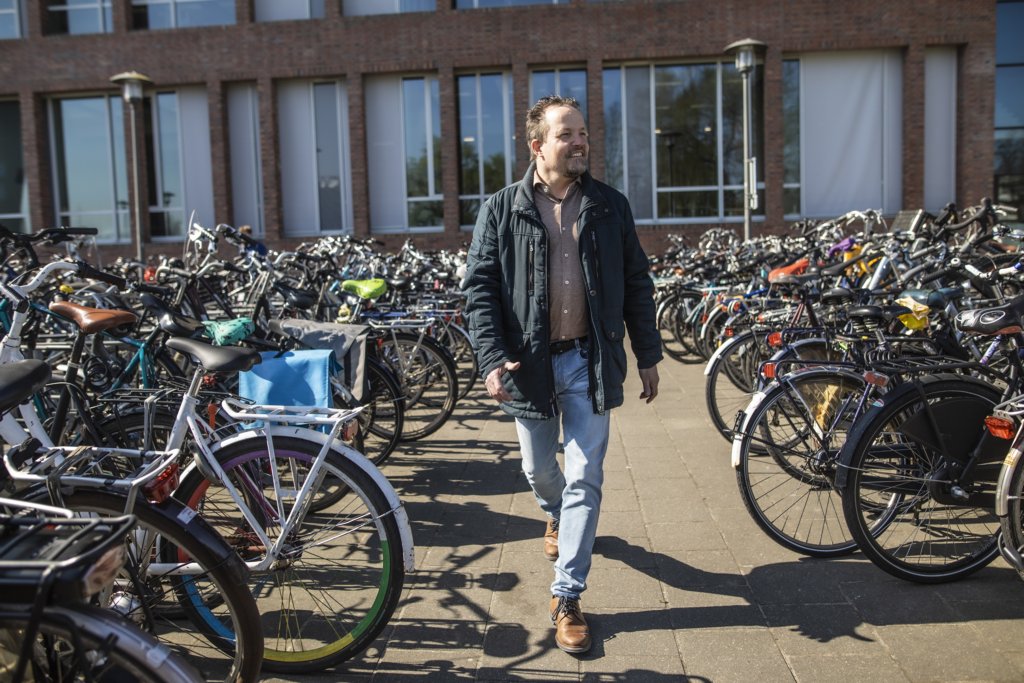
Different roles
Design expert Matthijs van Dijk, professor at TU Delft and founder of consultancy firm Reframing Studio, wholeheartedly agrees. Commissioned by 4TU, he designed a vision on eight different roles that engineers may play in the world (see text box below). “Education should follow a framework like that,” he believes. “Knowledge of those eight roles gives you much more control over your choices, and a sense of agency over your professional life.”
Bohm adds: “Lecturers also face very different challenges. How do you test those non-technical skills? How do you ensure that you and your classes continue to develop, while traditionally you are mainly judged on your scientific output?” Fortunately, there are more and more new forms of recognition and rewarding of academics and teaching in particular, all three experts note. More and more guidance and leadership trajectories are emerging – and the concept of ‘lifelong learning’ is gaining ground.
Fantastic progress
Kristina Edström, Swedish engineering education reformer and now also professor at TU Delft, has been involved with 4TU from the very beginning, and has served on the 4TU.CEE Advisory Board since 2014. How does she see the developments during that period? “I think the progress has been absolutely fantastic”, Edström says without hesitation. “The concept of 4TU is truly unique. Collaborating at a national level, instead of competing with each other, is something you don’t see in many countries.” With a laugh: “In Sweden, we haven’t managed to do that yet.”
4TU.CEE has an international reputation, according to Edström. “The centre strengthens each of the four universities, but also contributes to the image of the Netherlands as a country with innovative engineering education. The centre has so much legitimacy, also internationally. The Dutch are always prominently visible at international conferences, demonstrating the success of the 4TU concept.”
Exchange
As a member of the Advisory Board, Edström has seen the academic successes emerge. “The first PhD students recently obtained their doctorates within 4TU.CEE,” she says. “Ten years ago, this was almost science fiction. I was so happy to congratulate Nina Bohm after her defense. It really felt like a milestone.”
Still, the capacity-building in the form of the newly graduated PhDs is just the tip of the iceberg, as Edström puts it. “The number one success factor has always been the buy-in from faculty. Teachers get inspiration and support from 4TU.CEE to enhance education. They get confirmation: you’re on the right track, these are sources and examples, and this is a community with shared interests. There is a good online infrastructure for sharing resources, and activities for exchanging ideas and experiences. Hundreds and hundreds of teachers have already participated and benefited.”
Innovation Map
Perry den Brok also notices concrete changes within 4TU.CEE. “Online, for example, you have the Innovation Map, a collection of educational innovations from which colleagues can draw inspiration and information. And at the institutions there are various education innovation funds, often led by, or in collaboration with CEE . They help lecturers, for example, to experiment with challenge-based and transdisciplinary education. More and more lecturers are participating, and these lines are increasingly present in the curriculum.”
Nina Bohm: “Everyone has a role. I see that as a positive: engineers are by definition people who like to be ahead of the pack, improve things, try things out. They are open to new experiences and are not afraid of change. That helps enormously, in this context.”
“The challenge is: how do you get everyone, even any ‘grumpy professors’, on board?” says Kristina Edström. “4TU.CEE has traditionally focused on the frontline, by stimulating innovation and innovators. The question is how to influence the broad mainstream: how can everyone enhance their education? How do you stimulate, motivate and support the people for whom this does not come naturally? It means looking at new forms of recognition and award, something in which the Netherlands is also leading the way but at the same time there is still a lot to gain.”
Creative thinking
Bohm and Den Brok draw inspiration from the research they do. Bohm: “This research has made me very enthusiastic about the role of innovative education in enabling major societal transitions. It has also made me optimistic: this type of research leads to concrete things that can be used immediately. In this field, too, it turns out that ‘research by design’ is a valuable concept.”
Den Brok: “This research has given my creative thinking a boost. And I think it’s wonderful that the outcomes are a great tool for teachers. That’s also what I want to transmit to colleagues: that a ‘research by design’ approach can yield very useful results. And a lot of fun and optimism.”




